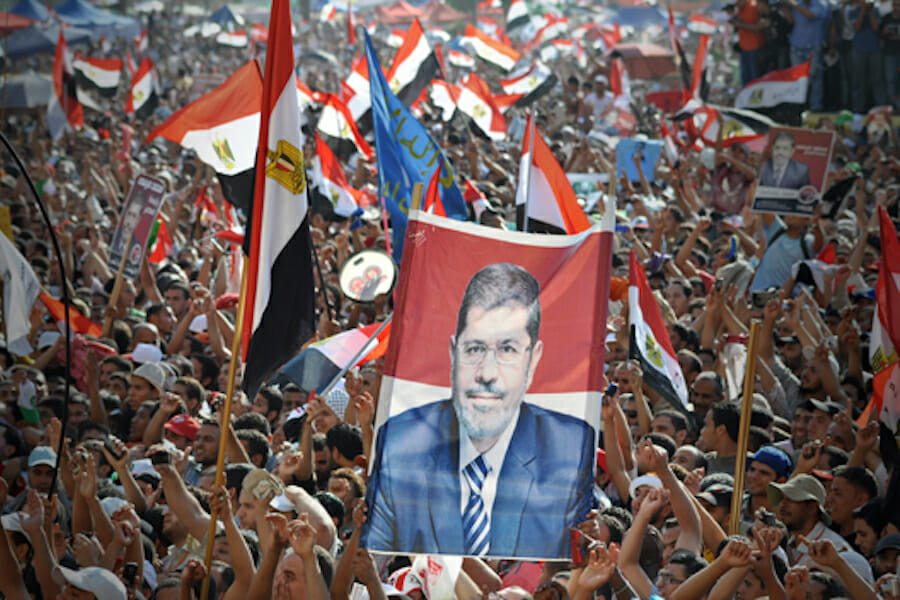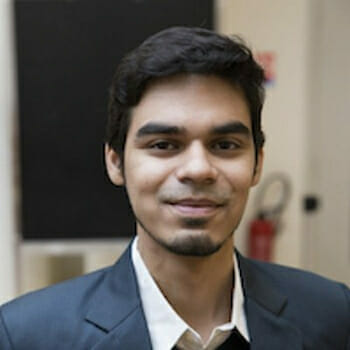
Culture
The Rise and Fall of Political Islam in Egypt
“Political Islam is a product of modernity as much as a response to it.” – Mohammed Ayoob
Islam emerged in elitist and starkly divided tribal societies that had over time corrupted the prevalent status quo. Beginning as a movement rallying for greater inclusiveness, unity and equality under the umbrella of one god regardless of lineage, wealth, age, or gender, it quickly transformed into a uniting factor for different tribal groups that ousted the classist beliefs and practises of the hierarchical and powerful Bedouin tribe in Arabia.
It served as an active call for addressing the social and economic problems prevalent at the time; political for those who wielded power and influence, empowering for those who had none. Islam’s origins were driven by ideals of justice and egalitarianism, rejecting the prevalent inequalities in the distribution of power among humans. Despite the evolution of Islam, Islamic ideals, Islamic objectives, and Islamic principles throughout history, questions pertaining to governance, legitimacy, the rights and duties of the ruler and the ruled, and the conditionality of the allegiance has, and continues to remain an issue of concern to Muslims, and Muslim societies.
Democracy and Islam have for the longest time, struggled to be compatible with each other. While addressing the above mentioned issues, the tryst between Islam and Democracy can be traced back to the rise and spread of ‘popular sovereignty’ as a concept, often regarded as a ‘precursor’ to democracy after the French Revolution. By the 19th century, Muslim thinkers and scholars achieved a greater degrees of familiarity with liberal thought and democratic governance.
Unfortunately, such ideas did not travel across the various strata of society thereby remaining limited until their experimentation with Islamic societies in the mid-20th century, post-colonial states. This ‘experimentation’ led to the creation of the Muslim Brotherhood in the early 20th century that was formed on the singular ideological and conceptual basis of ijtihad (independent reasoning). Today however, the enormity of the scale of interpretation of the Islamic Shariat gives rise to multiple schools of thought within Islam.
Despite such diversity in thought, Islam is largely accused of being monolithic and violent, especially with the rise and popularity of extremist groups such as the Al Qaeda, Tehreek-e-Taliban and the Muslim Brotherhood that was on December 24, 2013 a terrorist organization by the Egyptian Prime Minister Hazem Beblawi. Such multidimensional issues can neither be addressed without a thorough study of the causes behind the rise of such ‘Islamist,’ or radical movements advocating widespread structural change, nor without a thoughtful approach towards the significance of activism and civic participation.
Al-Wasat, a reformist ideology aimed at internal transformation through perpetuating democratic values for protection against state repression served as the primer for the rise of Islamic movements and political ideologies across post-colonial states in the early 20th century. Such movements gradually began taking up violence as a means of retaliation to authoritarian regimes. An example being the spread of radical and extremist ideas by Sayyid Qutb (d. 1969) of the Muslim Brotherhood in Egypt. The Muslim Brotherhood has ever since undergone significant transformation, with Umar al-Talmasari in 1982 criticising Qutb for his extremist measures in support of his radical views. Talmasari then turned his efforts to democratizating the Muslim Brotherhood’s policies for creating positive change in society in order to win back those who had lost faith in the organization’s methods and withdrew support over the use of violent tactics.
Political Islam, although a more modern concept, arising out of and from a post-colonial era, treads a different path, as opposed to what most Western political pundits and analysts conventionally think. It is far from monolithic, is not a violent expression of unanswered societal demands, and bears deep roots in Islamic tradition. Political Islam therefore, is not only defined from a canvas with multiple sets of definitions and perspectives, but also a personality with many different faces, and forms of manifestations. One could also argue that Islamism is a political ideology rather than a theological construct. It seeks to provide its followers/advocates with answers to social problems rather than spiritual solace.
Taking into account political movements over the past few years that have dragged a majority of West Asian countries into a deep abyss mired with instability, Political Islam can essentially be classified as a deeply contextualized, bottom-up, reformist approach. It seeks to integrate and politically mobilize people from the grass-root level up to the highest echelons of society within both Muslim as well as non-Muslim populations as witnessed by strategic initiatives undertaken by political organizations such as the Muslim Brotherhood in Egypt among several West Asian states suffering from years of dictatorial and repressive rule.
The 2002 Arab Human Development Report published by the United Nations Development Program observed that while Muslim-majority countries (not Arabic) such as Indonesia have openly embraced democratic ideals and principles by allowing new political parties to form, creating space for political participation and encourage political inclusiveness, holding periodical free and fair elections, West Asian nations have remained and continue to remain closed to such prospects, despite small openings for democratization. As the UN report also observes, transfer of power through the ballot box is not a common phenomenon in Arab countries.
Intellectuals and policymakers have however criticized the rise of politically motivated Islamic movements and Islamic manifestos as a viable means of democratization claiming that they reject secularist and liberal ideals. Moreover, intrusive policies directed at monopolizing resources adopted by foreign superpowers and external actors whilst granting several remittances to autocrat rulers have been more of an impediment to the process of democratization of Islamic societies than supporting actors which probably explain the long-standing period of rule by leaders such as Nasser, Sadat, and Mubarak in Egypt who acted more as political pawns of western powers than opposing figures.
The Muslim Brotherhood in Egypt during the early 21st century remained within the purview of the constitution and employed non-violent means with Islam as the pivot of their movement for mobilizing support and gathering momentum with the ultimate objective of transforming society and creating change in areas that were clearly beyond the reach of the state and the ruling autocrats. From the early 2000’s itself, the Muslim Brotherhood capitalized upon the policies initiated by Hosni Mubarak in Egypt aimed at ‘political liberalization’ under pressure from his Western supporters.
Although Hosni Mubarak did not grant political legitimacy to the Muslim Brotherhood as a political party fearing loss of public support, he did grant them greater freedom to campaign more openly than before for the Parliamentary elections scheduled for 2005-2006. Witnessing a cascading rise in support for the fundamentally Islamic group and a potential threat, Hosni Mubarak deliberately stopped people from voting for the Muslim Brotherhood who despite such measures, won a sizeable number of seats (88) in the Parliament thereby becoming the second largest party in Egypt.
The Muslim Brotherhood through cooperation with various minority groups both Islamic and non-Islamic realized the importance of cooperation and mutual support through their previous experiences with violence and state-led repression owing to which they were forced to go underground and restrict themselves and their activities to small scale mobilization and local communities. This turnaround greatly affected their thought process thus encouraging pluralism and democratic values in order to gain wider support, attention and to project themselves as a prudent opposition to the autocratic and repressive regime. The Muslim Brotherhood’s initial success as a democratic party based on Islamic ideals in Egypt in sum proves that initiatives aimed at mass mobilization and democratization in Islamic societies not only are proportional, but also bidirectional based on a notion of inclusiveness rather than exclusiveness.
As Mohammed Ayoob says – “Mainstream Islamism has mellowed considerably and turned pragmatic as a result partly of regime policies and partly of self-evaluation of their interests as extremist strategies have failed and as moderation has brought them closer to centres of power. If there is a long term trend in Islamist politics, it points towards moderation and constitutionalism, not violence and extremism.”
While politico-religious movements do hold great value and tenacity among homogenous ethnic populations, when juxtaposed against secular parties/initiatives, the latter are often neutralized by measures taken by the regime in question thus effectively crippling any possibility of them rising to popularity. The Arab Spring movement in Egypt and several other West Asian states form but a fragment of the larger debate around Political Islam, however, they reaffirm the notion of the phenomenon being contextual, deeply influenced by societal composition, circumstances, and state policy further emphasizing that Political Islam cannot be relocated from one place to another, given the variance in its size, shape, and colour.
Despite coming to power by a popular majority, the Muslim Brotherhood’s year in power remained fraught with challenges. For starters, NGO’s and democracy activists faced enormous constraints in their democratization efforts both formally as well as informally. Many such constraints also applied to foreign NGO’s that were repeatedly kept in legal limbo forcing them to keep a low profile staying clear of the government’s legal barricades.
Issues such as citizenship, rule of law, freedom of the press and media, inequalities in income distribution were some of the primary issues the Muslim Brotherhood had to deal with. Unfortunately, not being able to secure alliances with the liberal secularists and political ‘insurance’ for themselves in order to implement a moderate Islamist form of governance similar to what is followed in Iran and Turkey spelled disaster for the newly elected regime.
By mid-2013, Egyptian Army General Fateh al-Sisi had grown distant from the Islamist regime and began rallying popular support in order to depose Mohammed Morsi. Sisi’s efforts at mobilizing support bore fruit, resulting in thousands coming out into the streets protesting against Mohammed Morsi’s regime. The crumbling social order in Egypt forced people to come out into the streets and protest against the Muslim Brotherhood regime, which in turn used violent tactics to dispel the peaceful protestors which backfired.
Mohammed Morsi’s failure in implementing a proactive model of democratic governance and creating an environment for breeding inclusive governance, empowerment of women harness the revolutionary capabilities of Egyptian youth, allowing for the social acceptance of minority groups and channelling the support of those who resented the daunting influence of the SCAF (Supreme Council of Armed Forces) in Egypt led to the subsequent instability during the closing months of Morsi’s regime.
In that respect considering the rise of the military in Egypt, we can conclude that Egypt’s political movements were not revolutions, rather they were the restructuring of an already deeply military-ruled society that used Islamic values as a supporting crutch.
In conclusion, there are numerous roadblocks and limitations in relation to the pace of democratization, primarily in an Islamic society. One of the many issues faced in this regard, to quote Hamid Ansari, lies in the “inclusion of the modern system of rights” juxtaposed against the “Right of God.” Importantly, the social mosaic and the relationship of societal elements inevitably play a role in state formation. If during this procedure, the social dynamics of the political structure embark on a collision course, then reconciliation of the two shall require skills that would surely be embedded in civil society. Such a state would then not only shift focus to, but also require the integration of civil society in the political process. The question then in Daniel Brown’s perspective is to see “tradition as a beam of light, refracted by the prism of modernity.”

